
All categories
Featured selections
Trade Assurance
Buyer Central
Help Center
Get the app
Become a supplier

(362 products available)













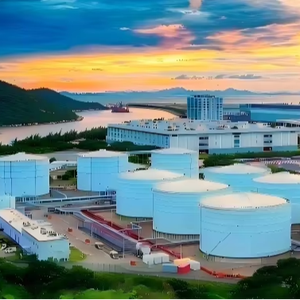



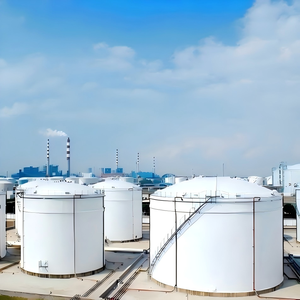


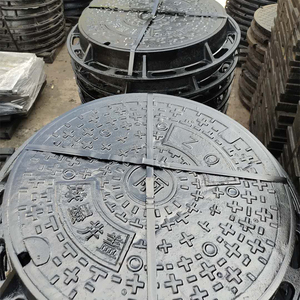

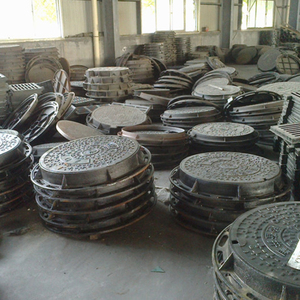


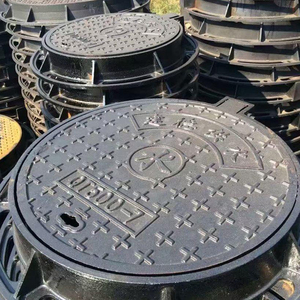



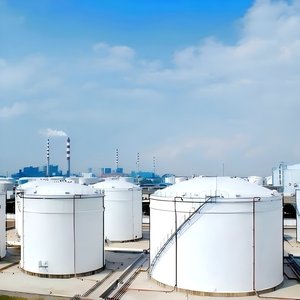






















Coal Tar Epoxy Paint
This is a kind of protective coat frequently employed to defend structures from rust and decay. Typical places where it is used include oil rigs, pipelines, and ships. The paint's extreme toughness and defense against corrosion make it excellent for usage in hostile settings.
Coal Tar Epoxy Primer
This coating is applied as the first layer in multi-layer painting procedures. Coal tar epoxy primer is often used to bolster defenses against moisture and corrosion when applied to metal or concrete surfaces. It makes future paint layers stick better and gives those layers additional protection.
Coal Tar Epoxy Adhesive
These adhesives are used to link surfaces while also providing protection against corrosion. They are frequently used to join metal pieces in constructions where chemical resistance and durability are essential. Bridges and marine structures are among the most popular applications.
Coal Tar Epoxy vs. Polyurethane
Polyurethane coatings provide even more flexibility and UV protection than coal tar epoxy coatings. As a result, they are frequently employed for land-based structures like buildings and bridges. PU coatings, however, may not give the same level of corrosion resistance as coal tar epoxy in contexts that are harsh.
Polyurethane
This coating is renowned for its flexibility and capacity to endure ultraviolet radiation. This makes it perfect for usage on roofs and other surfaces exposed to sunshine. Even if it may not be as effective at preventing corrosion as coal tar epoxy, PU coatings are still useful for keeping surfaces painted and protected.
The next sections explain the features, specifications, and industrial uses of coal tar epoxy.
High Durability
Coal tar epoxy paint is best renowned for its robustness. It is extremely difficult to peel, break, or wear, making it excellent for harsh conditions. This sturdiness guarantees that surfaces retain their protective qualities for a longer time.
Corrosion Resistance
One of the main benefits is its ability to prevent corrosion, especially in metal constructions like ships and pipes. It acts as a protective barrier, preventing rust and other corrosive elements from penetrating.
Waterproof
The waterproof qualities of coal tar epoxy aid in stopping decay in wooden and concrete structures. It contributes to the prolonged lifecycle of such materials by preventing the entry of moisture.
Chemical Resistance
This coating is ideal for industrial settings because it can handle stains caused by chemicals, oils, and other substances. Marine and petrochemical applications frequently use it.
Heat Resistance
It is capable of surviving a broad temperature range, including high heat levels. Due to this characteristic, it is helpful in settings with extreme temperatures, such such as refineries and steelworks.
Ease of Application
Although it is a robust coating, it is simple to apply. Depending on the application technique, it may be rolled on, brushed on, or sprayed on. Additionally, the paint can be mixed and used without much technological training.
Surface Preparation
To reach its highest performance, coal tar epoxy needs thorough surface preparation. For the finest adhesion and protection, surfaces often need to be cleansed and, in some cases, primed before application.
The next paragraphs discuss the specifications and industrial applications of coal tar epoxy.
Coal tar epoxy comes in several forms of coal tar epoxy specifications. These kinds are the primer, the intermediate and the topcoat. Specifications like viscosity, pot life, temperature tolerance and dry time represent these kinds.
Viscosity
The viscosity of paint formulations varies, which affects how they may be applied. It has a range of viscosity levels from 800cP to 2000cP. cP refers to centipoise. The greater the number, the thicker the paint. The way paints with varying viscosity are used also differs. For instance, thicker paints are usually applied using brushes or rollers, while thinner paints are better for spraying.
Pot Life
The duration a paint can be used after blending before it hardens or becomes ineffective is known as pot life. Coal tar epoxy can have pot lives ranging from 30 minutes to 4 hours. Certain factors such as the activity of the painters and the surrounding temperatures affect pot life. If the pot life elapses, the paint begins to cure, which can adversely affect its application performance.
Heat Resistance
Several coal tar epoxy coatings can endure temperatures up to 400°F (204°C) or more. This makes it suited for use in environments that bear a heat such as refineries and power plants. The coating's capacity to resist heat improves its longevity in such settings.
Here are some of the industrial usages of coal tar epoxy.
Marine Industry
Ships, boats, and structures like docks and piers regularly employ it. The coating's capacity to oppose water, salt, and corrosion makes it suited for marine surroundings. This coating is usually applied to the hulls of ships and other underwater structures since it offers long-lasting protection against rust.
Oil and Gas Industry
This is used to cover pipes, tanks, and other equipment in the oil and gas sector. Pipelines buried underground or in hostile environments are best protected because of its resistance to chemicals and corrosion. Storage tanks are also coated with it to prevent corrosion and prolong the tank's life.
Construction and Infrastructure
It is frequently applied to concrete structures such as bridges and parking garages. It protects these structures from the corrosive effects of moisture, chemicals, and salts. It is also employed in underground foundations and tunnels where exposure to soil and water can cause erosion.
Industrial Facilities
Power plants, refineries, and manufacturing facilities normally use this. To safeguard equipment, flooring, and walls from chemical exposure, these industries employ the coating. It is also employed in high-temperature contexts to create resistance to heat.
Agricultural Applications
It helps to protect silos, storage tanks, and other structures from the damaging effects of moisture and chemicals used in agriculture. These chemicals include fertilizers and pesticides. The coatings ensure that the structures last longer and resist corrosion.
Coal tar epoxy comes in various types and functions. With the right kind of coal tar epoxy, buyers can have the right kind of corrosion protection for their surfaces.
Consider corrosion protection
Not all coatings provide the same level of corrosion protection. Therefore, it is necessary to know the level of corrosion protection that each coal tar epoxy painting offers. Buyers should look for coal tar epoxy paints that meet international standards for corrosion protection.
Consider ease of application
These coatings can have different degrees of ease of application. Some of the paints require a steep learning curve for the end user. This may impact productivity on the job site. To avoid this, buyers should select coal tar epoxy paints that are easier to apply.
Consider the solidity of the coating
In the process of curving, epoxy paints develop a solid coating. Some of the paints develop more solid coatings than others. Such coatings are best at resisting chemical attacks. Buyers should consult the manufacturers or the technical data sheets of the paints to determine the solidity.
Repudiation of the brand
There are several brands of epoxies available in the market. Some have a higher reputation than others for making corrosion-resistant paints. To avoid the paints with lower ease of application and solidity, buyers should purchase those made by brands with a solid reputation.
First layer of application
Some types of coatings offer more protection when they are applied as the first layer. Other types of paints work best when applied as a topcoat. Buyers should moderate brands to know which of them work better for the first layer of application.
Application conditions
These include temperature and humidity conditions. These factors always affect the performance of the paint. Each type of paint has its optimal conditions for application. Buyers should consider the conditions that are available at their job site and the conditions that are stated on the paint container. If the conditions available are not optimal, consider whether the paint is compatible with the conditions. For instance, if the paint needs application in high humidity but the conditions are low, consider adding humidity-boosting agents.
People use this for protecting steel surfaces. They also use it for protecting pipes in industrial settings. This includes providing long-term protection for underwater surfaces and marine environments. It goes for more than 50 years of protection even for high-risk surfaces.
Coal tar comes with several advantages. Its ability to resist harsh chemicals and corrosion is one of them. Its resistance to UV radiation is another. The coating is both waterproof and flexible, which allows it to expand and contract to accommodate the surface beneath it.
This epoxy can be a health hazard to workers when they are applying it. This is more particular to those working in confined spaces. People also have the tendency of overexposing themselves to its fumes. This can lead to health complications such as skin irritation and dermatitis. In the long term, it can lead to skin cancer.
Epoxy is a flexible thermosetting polymer that offers superior protection from chemical and environmental damage, particularly in construction. On the other hand, coal tar is a thick black liquid from the carbonization of coal that has been used for centuries as a protective waterproofing treatment. While both provide strong, long-lasting protection, epoxy's versatility makes it better suited for modern construction needs.
No, they are not the same. Coal tar is derived from organic matter while asphalt is derived from petroleum. Coal tar epoxy is excellent for corrosion resistance and waterproofing. It also has a higher tendency to be a carcinogen compared to asphalt.